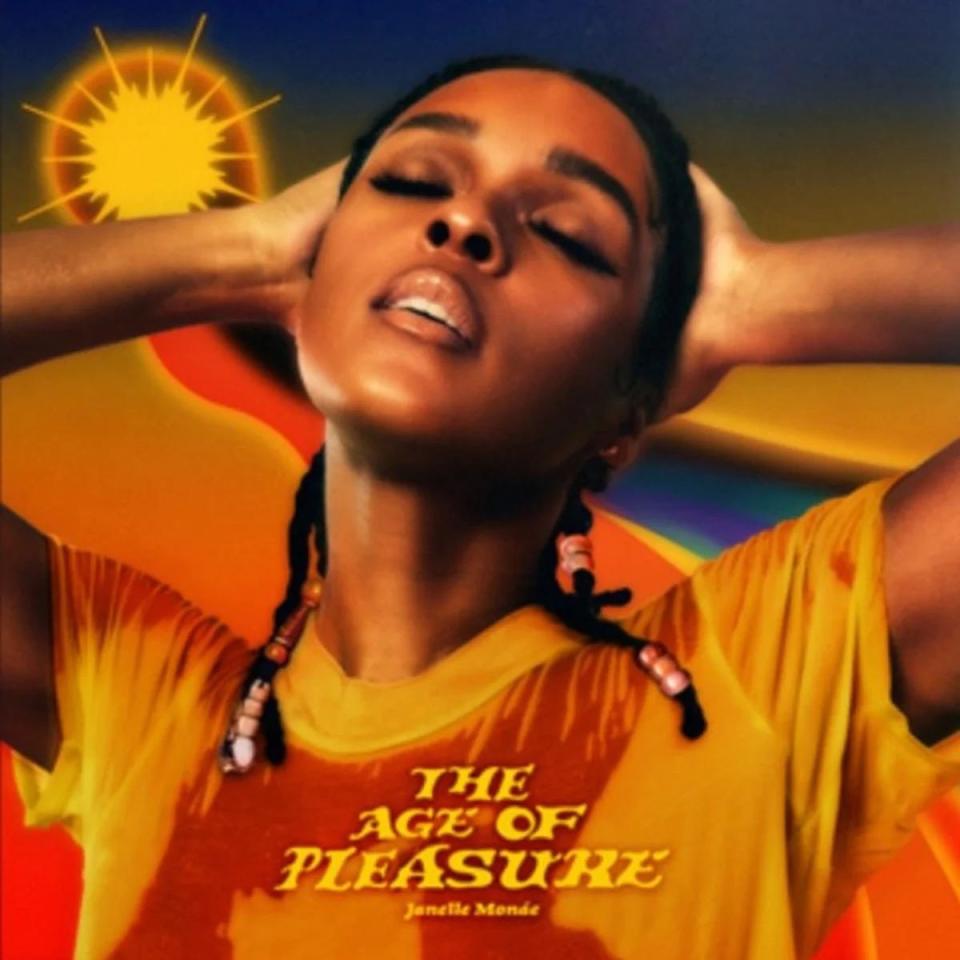Janelle Monáe reveals how she'll conjure up 'The Age of Pleasure' at Nashville's Ryman Auditorium
- Oops!Something went wrong.Please try again later.
Janelle Monáe's two-decade-long mainstream artistic career can best be described as a series of unprecedented creative moments defined by a life lived audaciously — alongside a century's worth of peerless Black musical excellence — at the precipice of pain, perspective and privilege.
"The Age of Pleasure" — the latest magnum opus they've arrived at during their musical journey through art and life — finds them finally in diametric opposition to pain, previously, as noted, one of the three foundations of their craft.
They bring the result of working around and through the growing pains of their most pleasurable personal evolution to Nashville's Ryman Auditorium on Oct. 3.
"Currently, my work reflects me as being present and not suffering in all versions of my humanity," says Monáe in an August conversation with The Tennessean.

Funk allows Monáe to create their most uninhibited work
Over their career, they've worked with a global who's who of progressive-minded Black music, including Erykah Badu, George Clinton, Diddy, Solange Knowles, Seun Kuti, Outkast's Dungeon Family, Prince, Nile Rodgers, Stevie Wonder and their own Wondaland Arts Society.
The result of this work can be combined and summarized as life-changing, technology-driven "emotion pictures" that fearlessly revise social constructs between gender, race, sexuality and conventional social norms.
"That was raw, often fun work that answered questions of why Black people make art, plus healed the souls of myself and others," Monáe says.
The persistence — as Clinton famously noted in the 1975 single "P. Funk (Wants to Get Funked Up)" — of funk music's Afrofuturistic ability to "not only move but re-move" walls between people and their best, most authentic selves is a highlight of Monáe's latest release.
"The Age of Pleasure" was "conjured" as a project that, according to Monáe, sounds something like the experiences everyone shared as the COVID-19 pandemic's impact stretched from weeks into months.
Imagine Monáe, especially during 2020, not as a tuxedo-wearing and immaculately presented force, but instead as an artist awakened by the early-morning sunlight of a quarantine-era Jamaican getaway.
That artist's hair sticks straight up in the air like a treasure troll, and they're stunned by the amount of wax their ear could create or hair that could appear under their arms overnight. Then, after a drink of water, they dig into their refrigerator for eggs, fruit roll-ups, or waffles for breakfast.
It turns out that it's not just funk — but also a great breakfast — that removes you from your inhibitions.
"Eating a crispy waffle dripping with syrup introduces me to my softest, most aware self — the person I'm molding myself into being," Monáe says.
Defining 'The Age of Pleasure'
A trio of Afro-Caribbean musical legends — dance queen Grace Jones, reggae icon Sister Nancy and Patra, a well-regarded dancehall artist — appear on "The Age of Pleasure," as well as Fela Kuti's son and current Egypt 80 bandleader Seun Kuti.
"A diaspora of freedom-aimed outliers who honor their spiritual evolutions are more aligned than ever in revolutionary resistance," Monáe says.

"This record is for when you dance out of the way of your mind and the sweat starts to spring up on your back."
To wit, the album's dance-party style release events saw fans enabling their Shazam apps and holding phones aloft, trying to identify then-unreleased album cuts like "Lipstick Lover" and "Water Slide."
Even deeper, Monáe dives into their creative self as an "android with different settings" who set themselves into party mode for two years. In that mode of their existence, they discovered "beautiful, encouraging music" that cultivated what they believe should "feel like an audio vacation."
More music: Cody Johnson to play Nashville's Bridgestone Arena in Feb. 2024
Pitchfork referred to the album as existing in a "Pan-African utopia." The review is correct.
The map location of a "Pan-African utopia" is still unknown. However, "The Age of Pleasure" sets the listener on a journey there by getting them out of the way of their funk-removed mind and dancing to unidentified Afro-Caribbean dance "riddims" made by an androgynous android.
What to expect at the Ryman
Monáe feels concerts like the one Oct. 3 at the Ryman will be "best if experienced as a joyous and intentional healing energy transfer from stage to crowd."
"I will be in service to a safe space that centers love and is free from oppression," they continue emphatically.
Monáe is also keen on offering that their concerts are best enjoyed alongside the effects of good marijuana, great food and drinks that aren't watered down.
"We're going to cry together," they add about the shared emotional space they believe their concerts will achieve.
"When I achieve what I know to be my best abilities as a bandleader, dancer, entertainer and singer, I feel like I can heal people through music."
This article originally appeared on Nashville Tennessean: How Janelle Monáe will conjure up 'The Age of Pleasure' in Nashville

